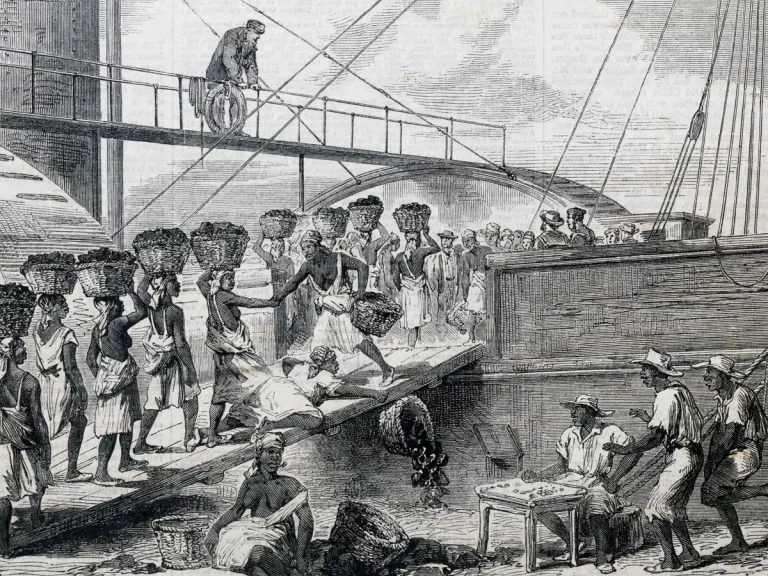Bringing justice in any situation requires not only the ceasing and desisting from the existing injustice but also requires either punishment or reparation for injuries and damages inflicted for prior wrongdoing. The essence of justice is the redistribution of gains earned through the perpetration of injustice. If restitution is not made and reparations are not instituted to compensate for prior injustices, what has only happened is that injustices were actually rewarded.
For over four and a half centuries, millions of Africans were captured to provide free labour in Europe, North and South America, and the Caribbean without their basic consent. People were made merchandise, exploited, and abused by their fellow humans who did not consider them human enough for reasons best known to them. Centuries later, the perpetrators of that injustice and inhumanity appear to have repented from those illicit acts, however, the injustice has not been comprehensively addressed.
Several discussions have happened ever since slavery was abolished over a century ago. Different aspects of reparations such as apologies for past harms, the right to know the truth, and financial compensation have formed major highlights of these ducussions but nothing concrete appears to have been achieved or is close to being comprehensively attained.
Some time on the 19th of December, 2022, the Netherlands became the first Western nation to formally tender its unreserved apology for participating in and profiting from the transatlantic trade of enslaved people who were mostly of African origin. It will be recalled back then that the Dutch Prime Minister, Mark Rutte who spoke at the National Archives in The Hague actually apologised on behalf of his government for the country’s role in slavery, which he described as ‘ugly, painful, and even downright shameful’.
The truth is that the Dutch government actually deserves commendation for finally finding the courage to fully acknowledge and officially apologise for its role in the heinous ‘abetting, preserving, and profiting from slave trading for many centuries. But then again, a thorough look at the paths to reconciliation and healing as propounded by the government is equally grossly underwhelming. Apologies should just be a start if justice is actually the keyword.
It will be recalled that in his apology, Rutte had openly admitted that ‘centuries of oppression and exploitation still have an effect to this very day’ and then he went on to talk about ‘doing justice to the past and healing in the present’.
Fair enough, to set this healing process in progress, the Dutch PM had revealed that the government he lead is out to put in tremendous efforts to ‘enhance knowledge of the history of slavery’ and to ‘ensure more awareness, acknowledgment, and understanding’. To this end, he had announced the creation of a 200-million-euro ($216m) fund to help tackle the legacy of slavery as well as boost education. Sadly, nowhere in this highly remarkable apology did Rutte express an intention to take a single action on descendants of people who were enslaved back then.
Read Also: Congo Cobalt Mining: AU Must Stop The Use Of Child Labour
It is indeed very safe to conclude that the Dutch government, despite the historic official apology it offered for slavery, clearly still has no intention or any plan whatsoever to return to the descendants of enslaved people what it stole from them many years ago. Where then can one point to claim that reparations have happened to will set up the path to conclusive justice?
Also, sometime last year, Germany officially acknowledged it committed ‘genocide’ against the Herero and Nama people at the start of the 20th century in what is today’s Namibia. But the truth remains that until the process is reparations is complete, there is still a long way to go.
The bitter truth the West often hates being subjected to, is that the Netherlands just like most Western nations actually owes the immense economic prosperity it is experiencing today in part to the profits it made from slavery. In fact, a five-year research project funded by the Dutch Research Council titled ‘Slaves, commodities, and logistics’ which was published in 2019, reached the conclusion that ‘economic activities related to the slave trade between Europe, Africa, and America made a significant contribution to Dutch prosperity in the second half of the eighteenth century’. This is a fact and denying it will only amount to delusion.
Quite regrettably, the Netherlands is not alone among countries among that had benefitted from slavery in no small measure and yet are refusing to pay. The governments of the United States, the United Kingdom, France, and a host of others are also staying mum in the face of increasingly louder calls for reparations.
To put up some level of defense for their governments’ refusal to pay up, opinion leaders and in some cases, politicians in these countries always offer the same tired arguments. This is even worse in the cases of white conservatives who tend to view all efforts toward racial justice suspiciously. Most of the time, they claim that ‘it would be impossible to determine who deserves to be paid’, ‘no one alive today is directly benefitting or suffering from slavery’, and that it is ‘a thing of the past’ among other lame excuses which will by no means stand even the most basic scrutiny.

One thing the people who suggest this argument have failed to realise is that people are still clearly benefitting from slavery on one side and others are still suffering from the effects of slavery on the other hand. Ending the benefits without ending the suffering is selective justice!
In the US, for example, going by the Brookings Institution estimates, the average white family has approximately 10 times the amount of wealth as the average Black family. And white college graduates possess more than seven times more wealth than Black college graduates. Similar situations are obtainable in the UK too where people from Black African backgrounds typically hold the least wealth, about one-tenth of the wealth held by white Britons. It has to establish that such inequalities which have been worsened by systemic racism in all areas of life – from housing to education, health, and law enforcement – are direct, modern-day consequences that were brought about by slavery.
It is not right to insinuate that slavery is just a ‘thing of the past’ for people who were on its receiving end. For instance, in countries such as Suriname, direct descendants of people enslaved by Europeans and brought there to work in plantations make up most of the population to this date. For how long is the world going to continue to stay mute on these issues? Has everyone actually moved on?
The effects of slavery are still being felt everywhere. In Africa, the immense wealth that was lost to slavery is not one that can simply be ignored or forgotten just like that. If the resources that were stolen from the continent both human and material are returned, it would resolve most of the continent’s fundamental problems almost overnight and almost simultaneously position it to become a leader of the global economy. This is the bitter truth the world cannot continue to shy away from.
The question of who should receive reparations does not even arise, to begin with. If after the abolishment of slavery countries such as the Netherlands, the US, France, Denmark, and the UK all made very serious efforts to compensate former slavers for so-called ‘loss of property’, why hasn’t the favour been extended to the former territories where these atrocities were committed? To date, none of these former slave-holding countries have paid a single penny to formerly enslaved people or their descendants, why should this be the case?
At this juncture, the right thing to do is to ensure that compensation must be paid to the right people. Compensation must be paid not to those who turned human beings into merchandise but to those who continue to carry the pain and the scars of their ancestors to date.
Currently, there are already many existing templates that have been crafted. The Caribbean Community for example which is a grouping of 15 Caribbean countries whose populations are dominated by descendants of formerly enslaved people had created a 10-point plan for reparatory justice for European governments and it won’t be a bad idea to follow that template.
Going by what it has in this plan, the Caribbean Community wants Europeans to offer, among others, a full formal apology, repatriation opportunities, debt cancellation, technology transfer, psychological rehabilitation, and African knowledge programmes. These ideas are laudable and must be graciously pursued by everyone who has a conscience in today’s world. This 10-point plan should be a wonderful place to start for governments who are sincerely willing to confront their past with all its ugliness and effectively begin a healing process that can last forever.
In conclusion, some 160 years after the abolition of slavery in Europe and the US, Western countries, quite evidently, have an obligation not only to apologise to their victims but also to reparations and embark on comprehensive social justice programmes. Yes, apologies are wonderful and quite commendable, but much more importantly, descendants of enslaved people also need reparations and social change. The time to act is now.










